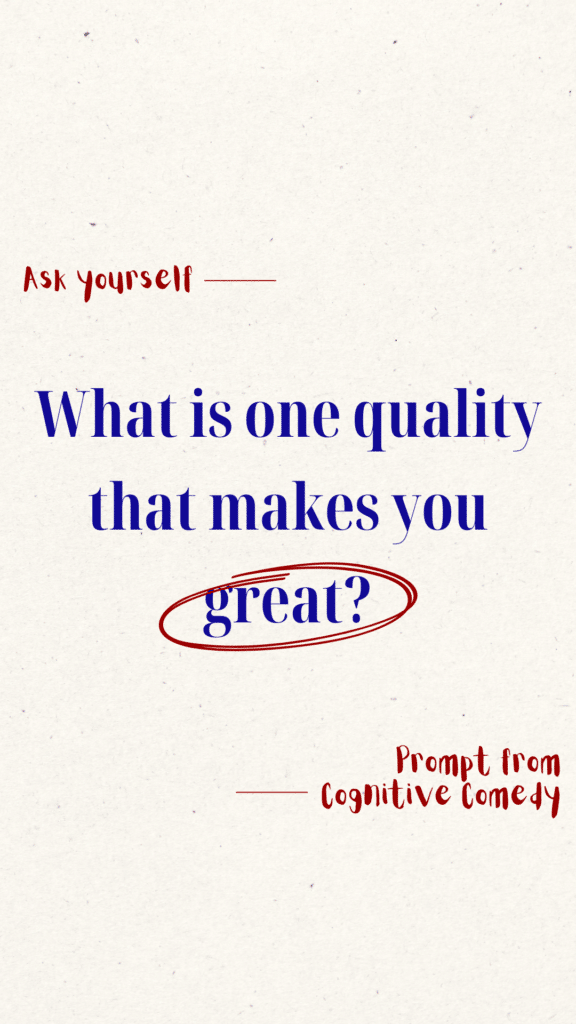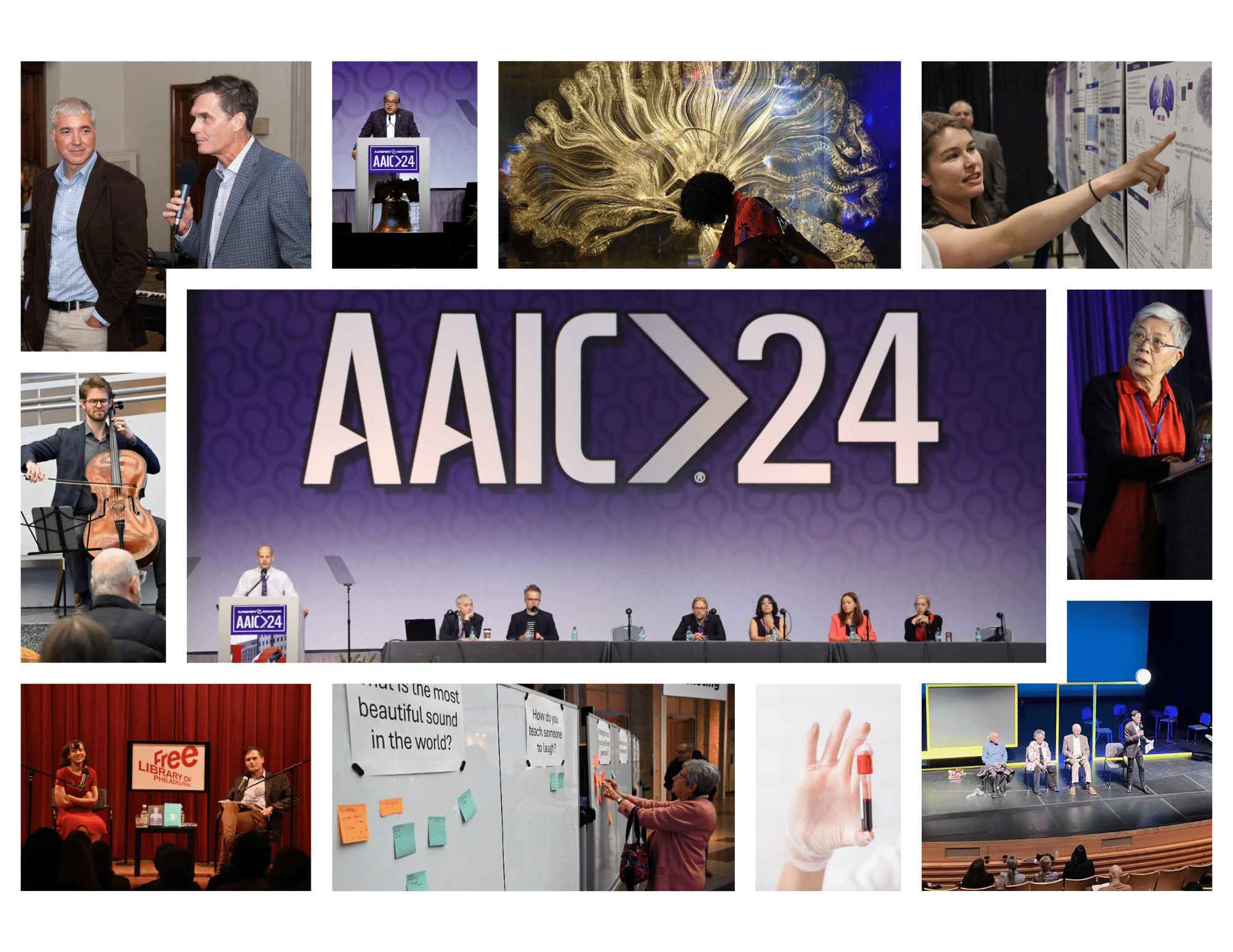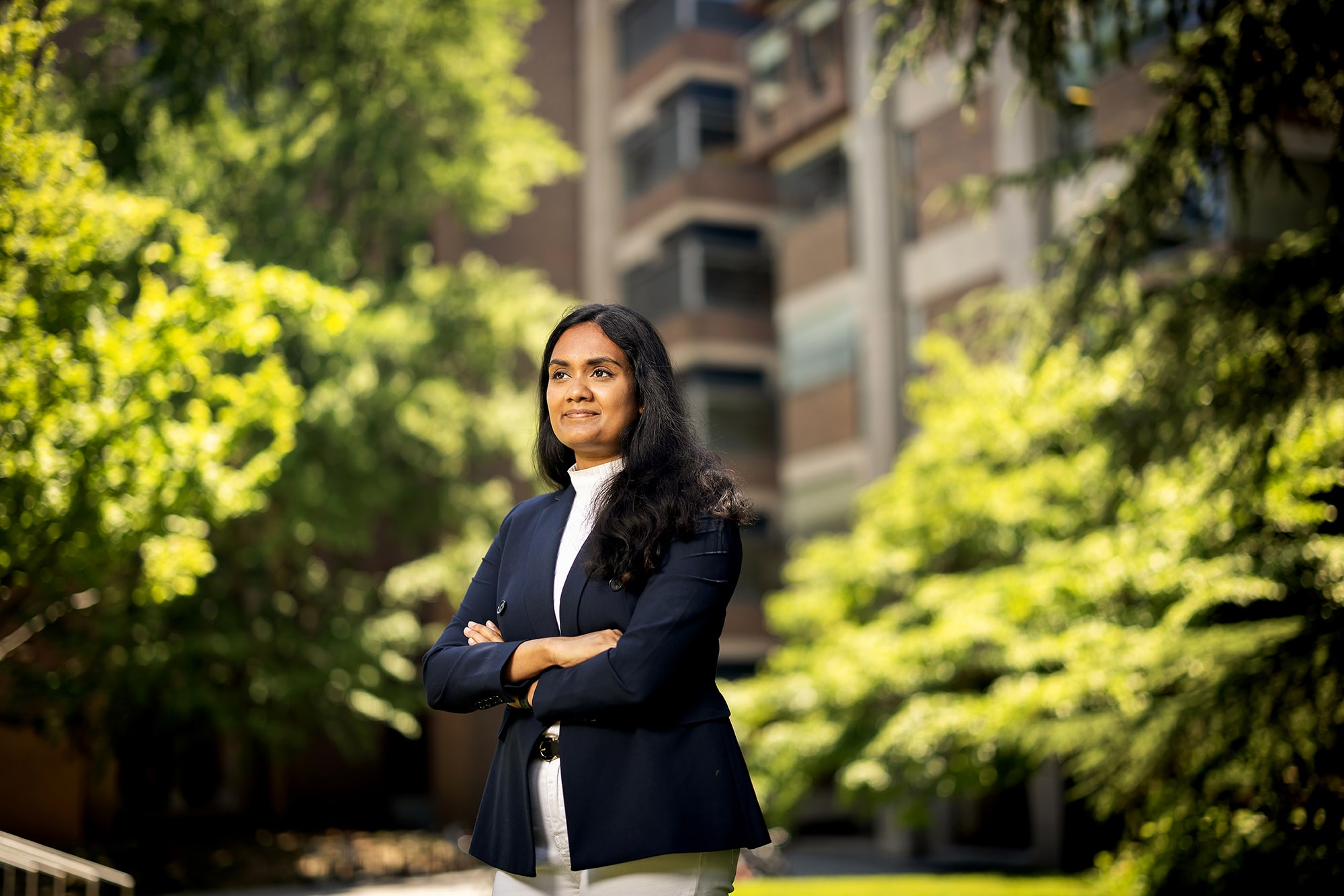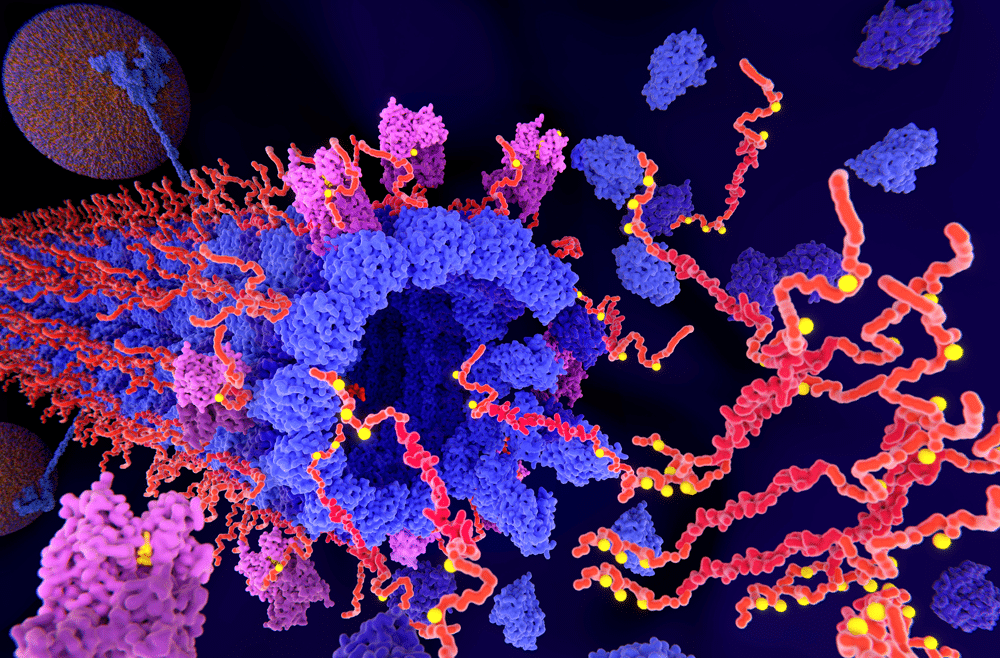By Meghan McCarthy
What is one quality that makes you great?
For many, this question can be a difficult to answer. Traditional societal values often discourage openly complimenting oneself in public. Yet, Jean Haskell, facilitator of the Penn Memory Center’s Cognitive Comedy class, often begins sessions by posing this very question.
As I observed a fall class, I was struck by the ease and comfort with which participants responded.
“I try to be kind,” one participant said.
“I work out every other day,” another shared.
“I am great because of my wife,” a third added.
This seemingly simple question revealed a profound impact. It’s a question we might all benefit from asking more often.






